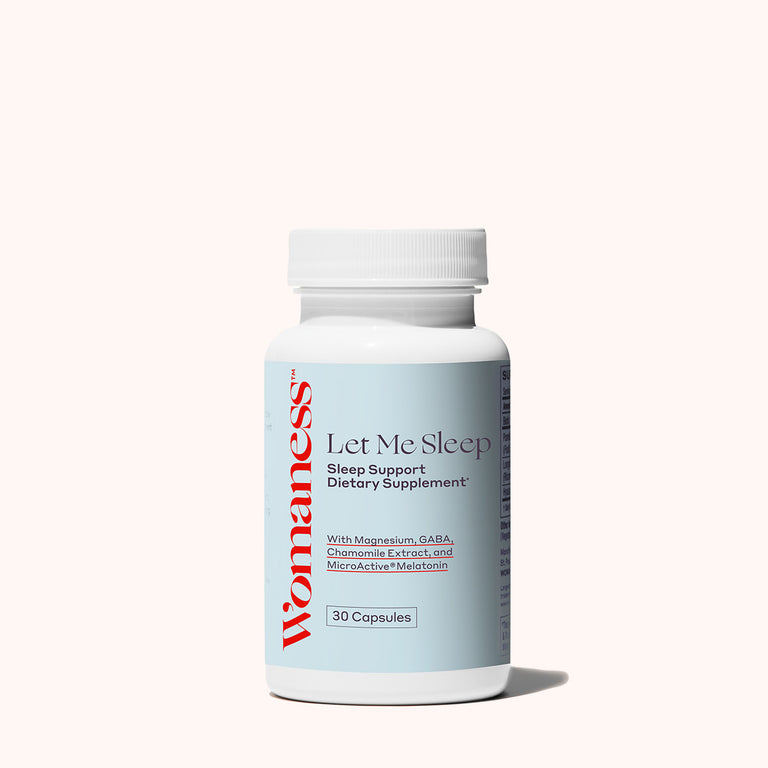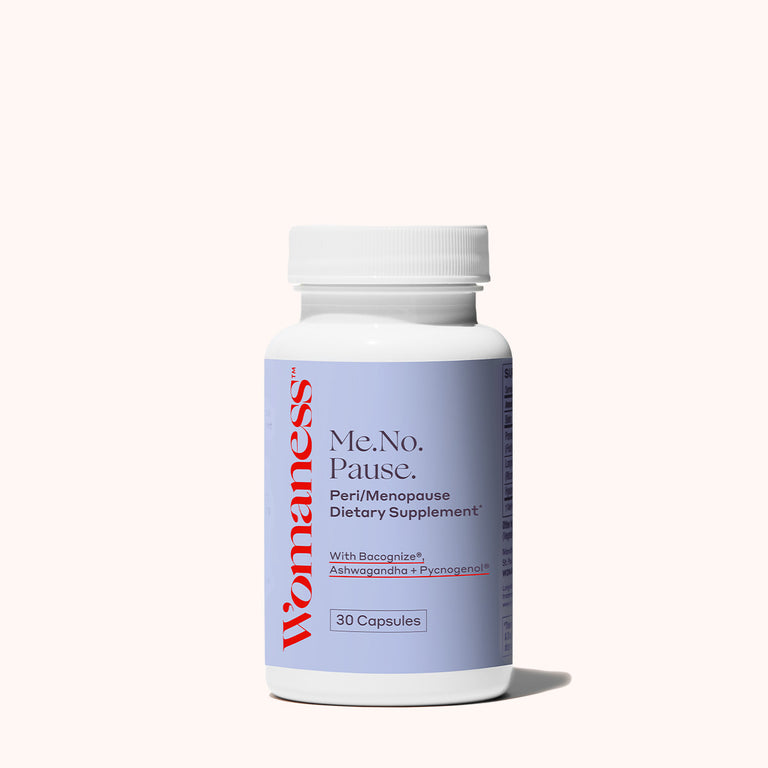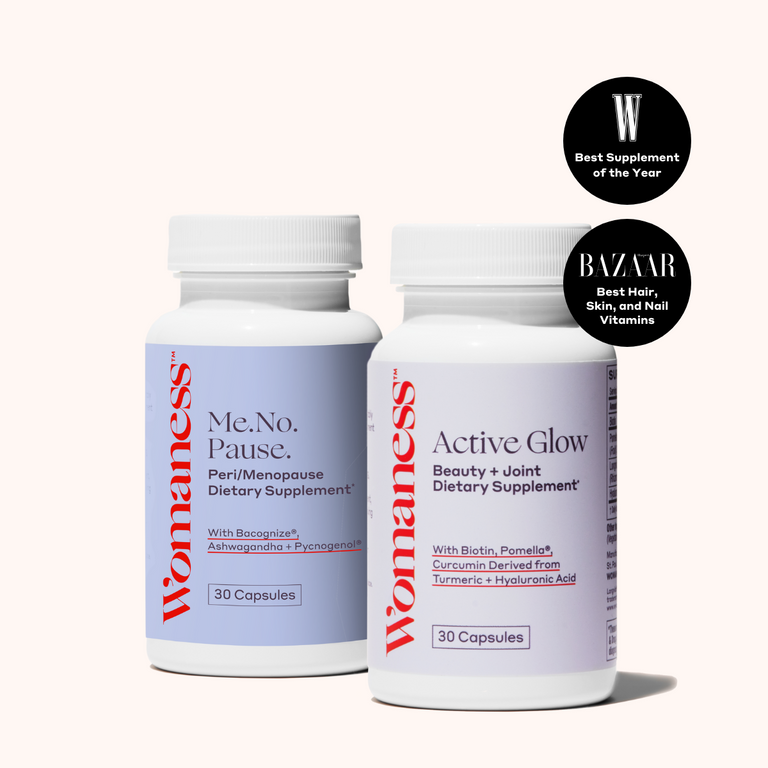By Womaness Editors 2-Minute Read

If you’re in perimenopause—that stage in a woman's life happening right before menopause, typically in your 40s or early 50s—you may already be familiar with the hormonal changes that come with it. During this phase, your body’s changes can lead to a range of symptoms from hot flashes, to mood swings, and, gulp, sleep disturbances. And yes, while these symptoms are a natural part of the aging process, you may (like many others!) consider seeking relief through the use of supplements.
Here are some of the best supplements to consider to help make managing your perimenopause symptoms easier:
1. Flaxseed
Flaxseed is rich in omega-3 fatty acids and lignans, which can help regulate hormone levels and reduce the intensity and frequency of hot flashes (take a look at this study to see results). Bonus: It also supports your heart health and may alleviate mood swings.
2. Vitamin D
Vitamin D is essential for bone health and can be particularly beneficial during perimenopause when bone density may start to decline. It also plays a role in mood regulation and may be smart to help you alleviate symptoms of depression and anxiety.
3. Calcium
Research shows that calcium is essential for maintaining strong bones—and it's especially important to note that women in perimenopause are at an increased risk of developing osteoporosis. Taking a calcium supplement can help you prevent bone loss and reduce the risk of fractures.
4. Magnesium
Multitasking magnesium is known to help reduce muscle tension, promote relaxation, and improve sleep quality. It can also be beneficial for reducing symptoms of anxiety and irritability, which are often common during perimenopause.
5. Evening Primrose Oil
Evening primrose oil contains gamma-linolenic acid (GLA), which has been shown in studies to have anti-inflammatory properties and can help alleviate breast pain and tenderness, another common symptom of perimenopause. It may also help regulate your hormone levels and improve skin health.
6. Pycnogenol
Derived from the bark of a French maritime pine tree, Pycnogenol contains various antioxidants such as procyanidins, bioflavonoids, and phenolic acids. Some studies have explored the potential benefits of pycnogenol on menopause symptoms, particularly hot flashes and night sweats, with studies showing positive effects when taken daily.

7. Bacopa monnieri
Bacopa monnieri, also known as Brahmi, is an herb that has been used traditionally in Ayurvedic medicine to enhance cognitive function and improve memory. It contains compounds called bacosides, which are believed to have neuroprotective and antioxidant effects on the brain. Several studies have investigated the effects of Bacopa monnieri on focus and memory. The findings have been generally positive, suggesting that Bacopa monnieri may have potential benefits in these areas. It has been found to improve memory formation, retention, and recall in both healthy individuals and those experiencing cognitive decline.
8. Ashwagandha
Several studies have investigated the effects of ashwagandha on stress reduction and mood enhancement. The results have shown promising effects, suggesting that ashwagandha may have the potential to reduce your stress levels and improve overall mood. It is believed that ashwagandha works by regulating cortisol, the primary stress hormone, and by modulating neurotransmitters such as serotonin and dopamine, which play a crucial role in mood regulation. Additionally, ashwagandha has been observed to have anxiolytic properties, meaning it may help reduce symptoms of anxiety. Some studies have shown significant reductions in anxiety levels in individuals taking ashwagandha supplements compared to a placebo. As with any supplement, it's recommended to speak with your doctor before adding ashwagandha to your routine.
9. Fenugreek
Fenugreek is an herb that has been traditionally used for various health purposes, including its potential effects on libido and sexual function. While anecdotal evidence and traditional practices suggest that fenugreek may have positive impacts on libido, the scientific evidence supporting these claims is limited. Some studies have suggested that fenugreek may have the ability to increase testosterone levels, which could potentially enhance libido. Testosterone is a hormone that plays a role in sexual desire and performance in both men and women.
More For You
Food to Eat (and Avoid) to Improve Menopause Symptoms
Ask a Gynecologist: "What are bioidentical hormones?"
Ask a Doctor: "How long does perimenopause last?"








